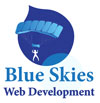The Increase of Student-Driven Encyclopedias: Changing Learning Landscapes
In the ever-evolving realm of education, where info streams perfectly and access to knowledge is only a click away, student-driven encyclopedias are emerging as a dynamic device in the understanding procedure.

These systems not only provide trainees with a repository of details but also motivate them to contribute, edit, and curate content, fostering a collaborative and interactive learning environment.
As academic paradigms change in the direction of more participatory and inclusive models, the principle of student-driven encyclopedias personifies this makeover. These platforms equip students to end up being energetic participants in understanding production, bridging the void in between standard textbook understanding and modern-day digital resources.
The Concept of Student-Driven Encyclopedias
Student-driven encyclopedias are digital systems where students collectively gather, verify, and student community share details on a wide variety of topics. Unlike typical encyclopedias, which are frequently written by professionals, these platforms utilize the joint efforts of students to produce a thorough body of expertise.
At their core, student-driven encyclopedias are designed to cultivate vital reasoning, study skills, and digital literacy amongst pupils. By participating in the process of web content creation, students find out to browse and review information seriously, abilities that are important in today’s information-rich culture.
Additionally, these platforms act as a space for students to explore their rate of interests and share their know-how. This autonomous approach to expertise creation makes certain that a varied series of perspectives and voices are stood for, enhancing the learning experience for all participants.
- Trainees get hands-on experience in research and material development.
- Motivates collaboration and peer interaction.
- Advertises a much deeper understanding of subject.
- Fosters inclusivity and variety in expertise depiction.
In essence, student-driven encyclopedias change pupils from passive receivers of details into active factors, instilling a sense of possession and responsibility in their academic journey.
Advantages of Student-Driven Encyclopedias
Among the primary benefits of student-driven encyclopedias is the advancement of essential 21st-century skills. As pupils take part in the process of material production, they sharpen their crucial thinking, electronic literacy, and communication skills, all of which are important in today’s interconnected world.
Additionally, these systems urge a collaborative understanding environment, where pupils can work together to validate info, debate various viewpoints, and co-edit write-ups. This peer-to-peer interaction not just enhances discovering results however additionally promotes a feeling of community and mutual regard amongst students.
Moreover, student-driven encyclopedias supply a system for showcasing student job. As pupils contribute to the encyclopedia, they develop a profile of their research and writing, which can be important for more scholastic and specialist quests.
Challenges and Limitations

Regardless of the numerous advantages, student-driven encyclopedias additionally deal with particular difficulties. Making sure the accuracy and dependability of details is critical, as these platforms rely on payments from trainees that may not yet have expert-level understanding.
- Keeping content high quality and accuracy.
- Supplying adequate supervision and assistance.
- Making sure equitable accessibility and inclusivity.
To minimize these difficulties, lots of student-driven encyclopedias implement a system of checks and equilibriums, where material is reviewed by teachers or specialists before magazine. This makes sure that the information provided is both accurate and trustworthy, upholding the stability of the system.
The Future of Student-Driven Encyclopedias
As technology remains to development and the landscape of education and learning progresses, the possibility for student-driven encyclopedias is huge. These platforms have the capacity to not only enhance conventional instructional sources however also redefine the means expertise is acquired and shared.
In the future, we might see student-driven encyclopedias incorporating advanced innovations such as artificial intelligence and machine learning to enhance material curation and personalization. In addition, they may expand past textual details to include multimedia content, offering a more immersive understanding experience.
Encouraging the Next Generation
Student-driven encyclopedias hold the promise of equipping the next generation of learners. By placing pupils at the helm of expertise production, these systems motivate long-lasting learning, inquisitiveness, and intellectual independence.
To conclude, as instructional systems continue to introduce, student-driven encyclopedias stand as a testament to the power of partnership and the significance of trainee agency in the understanding process. By welcoming these platforms, we unlock to a much more comprehensive, engaging, and vibrant educational experience for all.

